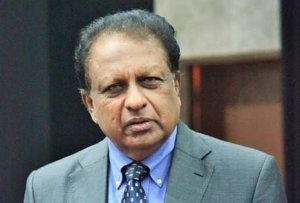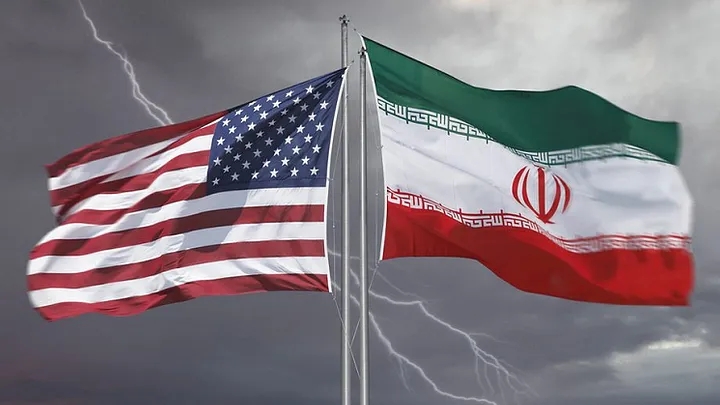
US-Iran: Stepping Back From the Brink
The world waited with bated breath on January 8, 2020 morning Washington time for President Donald Trump to wake up from the right side of the bed in a good mood as the future of peace in the Middle East and the rest of the world depended on what he would say on waking up. He had gone to sleep the previous evening after he had heard that Iranian missiles had hit the American military bases in Iraq to avenge the death of Major General Qassem Suleimani, the Iranian folk hero, who played around with the lives of millions of people in different countries, from “New Delhi to London”, according to Trump. An emergency meeting at the White House had ended abruptly and Trump had gone to sleep after tweeting the following:“All is well! Missiles launched from Iran at two military bases located in Iraq. Assessment of casualties & damages taking place now. So far, so good! We have the most powerful and well equipped military anywhere in the world, by far! I will be making a statement tomorrow morning.”
As Trump slept, the world was hit by a nightmarish revelation by Iranian media that the Iranian missiles had played havoc with the US bases and as many as 80 US soldiers had lost their lives. Ayatollah Ali Khamanei added fuel to the fire by claiming that the attack was a severe blow on the face of the Trump Administration. Many jumped to the conclusion that the US would strike back with ferocious intensity and start a war with Iran, which Trump had avoided for more than a year. This was not credible as the top leadership could not have been unaware if such damage was inflicted on the US on the evening of January 7, 2020. Many thought that Trump might have been in the war room the whole night.
But the world heaved a collective sigh of relief when Trump emerged after a peaceful night to announce that not much damage was done to the bases and no American lives were lost in the attack. The attack was expected and sufficient precautions were taken to avoid casualties. He said that there would be no further counter attack as "Iran appears to be standing down, which is a good thing for all parties concerned and a very good thing for the world." Trump appeared to be positioning the US to de-escalate, but offered very little room for Iran to escape essentially sticking to a maximalist approach and demanding that any de-escalation would happen on US terms. Trump announced that his administration would once again slap Iran with more sanctions and demanded that US allies leave the nuclear deal so that a new pact can be negotiated. He stressed that the bottom line was that Iran would never be allowed to possess nuclear weapons. The US has already announced new sanctions to inflict losses in the industrial sector.
The President's remarks set out no basic change from an administration strategy to raise tensions, putting the region on edge and bringing the US and Iran to the brink of war in the first days of the new year.
The welcome developments were not unexpected as Trump had already accomplished his mission. He had eliminated the worst terrorist, who had masterminded many murderous attacks around the world. He had also managed to bring foreign policy to the forefront of the election debate during the Democratic Primaries and on the eve of impeachment trials in the US Senate. At one stroke, he emerged as front runner in the elections of 2020. His preference for peace to war was also established even after he had assassinated Suleimani. The Nobel Peace Prize appeared tantalizingly on the horizon.
But the true peace maker was my counterpart at the Iranian Mission to the UN in New York, Ambassador Javad Zarif, a highly sophisticated man and a master diplomat, whom the Americans admire and are happy to deal with. He was the one who wrestled with the Trump administration on the one hand and the Ayatollahs on the other to shape the nuclear deal in Geneva. I have seen him sitting through the negotiations at night and regaling us with jokes whenever there was a break.
Zarif was the first to indicate on a CNN interview on January 6 that Iran was not keen on extracting its pound of flesh. After attacking Trump for unlawfully assassinating Suleimani, he said, “this is an act of aggression against Iran, and amounts to an armed attack against Iran and we will respond. But we will respond proportionally not disproportionally," he said. "We will respond lawfully, we are not lawless people like President Trump." At that point in time, he sounded unrealistic, but that was a position approved by the Ayathollahs to avoid an all-out war without losing face. Many speculate that the Iranians had deliberately misguided the missiles to avoid hitting the US military too strongly.
The US-Iran situation now resembles the India-Pakistan situation. Nothing has been resolved and the uneasy peace can be shaken any time. Both sides remain battle ready and any action by either side would provoke surgical strikes. With biting sanctions, Iran will be on a tight leash at least till the US Presidential elections. Additionally, Iran has admitted a grave error in shooting down an Ukrainian jetliner at the Tehran airport, mistaking it for a US fighter plane.
What we may not know for long is the precise reason for the assassination of Suleimani at this point, particularly if there was no intention to start a war. The situation today remains the same as before the attack and counter attack and US interests in Iran do not appear to have been strengthened. If anything, it has provoked a move to eliminate the US presence from the Gulf region. The action has also not advanced the move to strengthen the Iran nuclear deal. Iran and the US appear to be back to square one with additional dangers.
India is relieved more than anyone else as losses to India will be colossal for us in the event of war. There was a hint of optimism in the conversation between PM Modi and President Trump as the stress was more on bilateral relations than on impending war. EAM Jaishankar was more forthright in his conversation with Secretary of State Pompeo and outlined the deep concern of India. The sanctions regime will be bad enough, but it will be better than a hot war engulfing the whole region.

